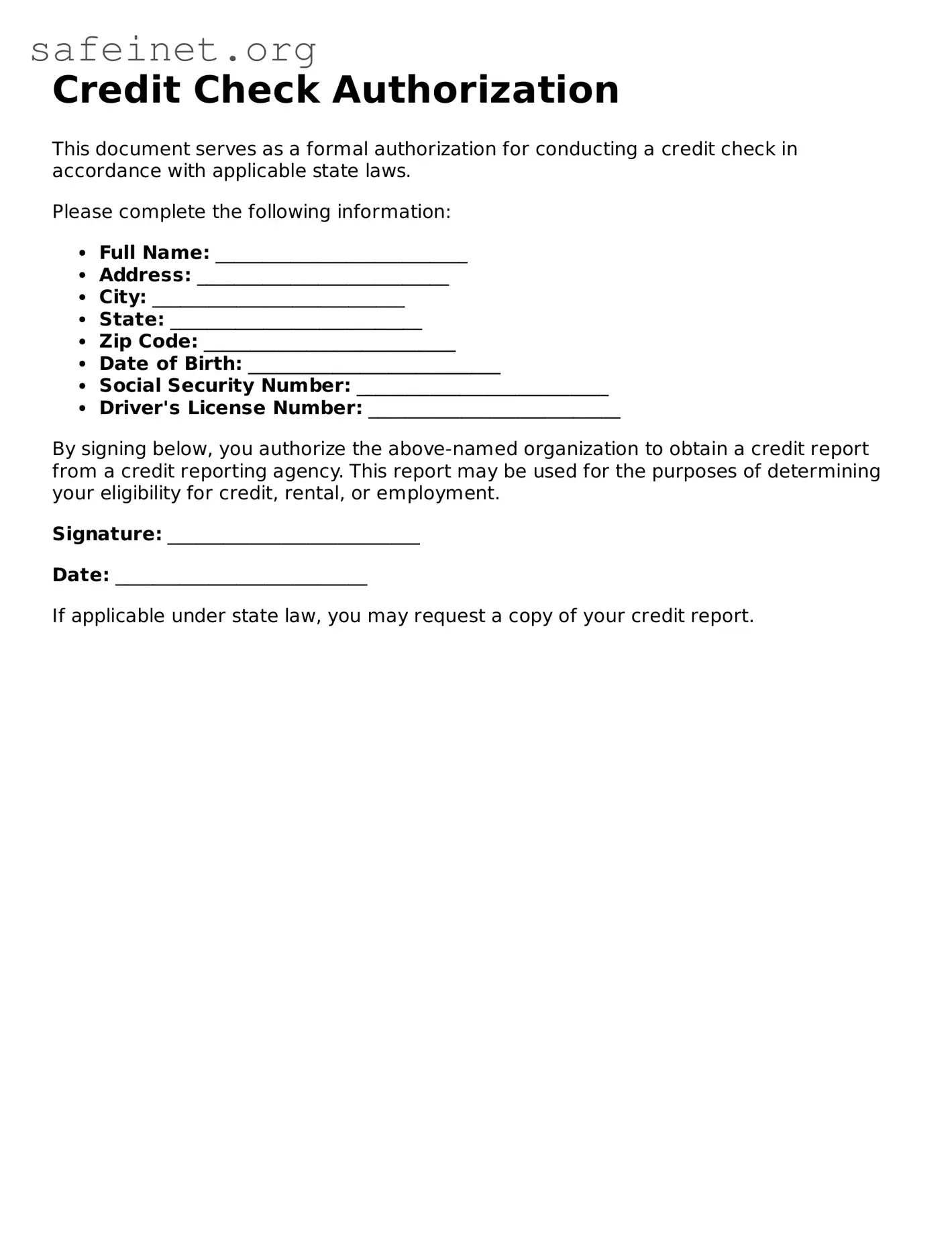Credit Check Authorization
This document serves as a formal authorization for conducting a credit check in accordance with applicable state laws.
Please complete the following information:
- Full Name: ___________________________
- Address: ___________________________
- City: ___________________________
- State: ___________________________
- Zip Code: ___________________________
- Date of Birth: ___________________________
- Social Security Number: ___________________________
- Driver's License Number: ___________________________
By signing below, you authorize the above-named organization to obtain a credit report from a credit reporting agency. This report may be used for the purposes of determining your eligibility for credit, rental, or employment.
Signature: ___________________________
Date: ___________________________
If applicable under state law, you may request a copy of your credit report.
